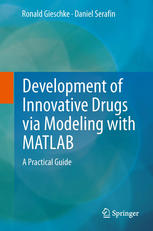

Most ebook files are in PDF format, so you can easily read them using various software such as Foxit Reader or directly on the Google Chrome browser.
Some ebook files are released by publishers in other formats such as .awz, .mobi, .epub, .fb2, etc. You may need to install specific software to read these formats on mobile/PC, such as Calibre.
Please read the tutorial at this link: https://ebookbell.com/faq
We offer FREE conversion to the popular formats you request; however, this may take some time. Therefore, right after payment, please email us, and we will try to provide the service as quickly as possible.
For some exceptional file formats or broken links (if any), please refrain from opening any disputes. Instead, email us first, and we will try to assist within a maximum of 6 hours.
EbookBell Team

4.1
70 reviewsThe development of innovative drugs is becoming more difficult while relying on empirical approaches. This inspired all major pharmaceutical companies to pursue alternative model-based paradigms. The key question is: How to find innovative compounds and, subsequently, appropriate dosage regimens?
Written from the industry perspective and based on many years of experience, this book offers:
- Concepts for creation of drug-disease models, introduced and supplemented with extensive MATLAB programs
- Guidance for exploration and modification of these programs to enhance the understanding of key principles
- Usage of differential equations to pharmacokinetic, pharmacodynamic and (patho-) physiologic problems thereby acknowledging their dynamic nature
- A range of topics from single exponential decay to adaptive dosing, from single subject exploration to clinical trial simulation, and from empirical to mechanistic disease modeling.
Students with an undergraduate mathematical background or equivalent education, interest in life sciences and skills in a high-level programming language such as MATLAB, are encouraged to engage in model-based pharmaceutical research and development.